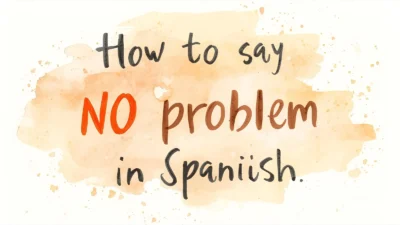Learning how to say Good Morning in Portuguese is a friendly and warm way to start your day when speaking with Portuguese or Brazilian people. The main phrase you’ll use is “Bom dia” (pronounced: bohm jee-ah). It’s simple, polite, and works in almost every situation—whether you’re greeting friends, coworkers, or someone you just met.
Using this phrase shows respect and positive energy in your conversation. Plus, it’s one of the first and most useful expressions to learn when starting Portuguese. Once you learn it, you can greet confidently in any setting. It also helps you create a positive impression right from the start.
Good Morning in Portuguese
Here’s a 15-phrases table for different ways to say Good Morning in Portuguese, with English meaning, Portuguese phrase, and usage/context:
15 phrases table for How to Say Good Morning in Portuguese
| # | English Phrase | Portuguese Phrase | Usage / Context |
|---|---|---|---|
| 1 | Good morning | Bom dia | Standard, polite greeting |
| 2 | Morning! | Dia! | Casual, friendly |
| 3 | Good morning, everyone | Bom dia a todos | Group greeting |
| 4 | Good morning, friend | Bom dia, amigo/amiga | Friendly, informal |
| 5 | Good morning, sir | Bom dia, senhor | Formal, respectful |
| 6 | Good morning, ma’am | Bom dia, senhora | Formal, respectful |
| 7 | Have a good morning | Tenha um bom dia | Polite wish |
| 8 | Good morning, colleague | Bom dia, colega | Workplace greeting |
| 9 | Good morning, dear | Bom dia, querido/querida | Affectionate, personal |
| 10 | Good morning, teacher | Bom dia, professor/professora | Students greeting teacher |
| 11 | Good morning, everyone (casual) | Bom dia, pessoal | Informal group greeting |
| 12 | Morning sunshine | Bom dia, sol | Playful, affectionate |
| 13 | Good morning, buddy | Bom dia, parceiro | Casual, friendly |
| 14 | Wishing you a great morning | Desejo um ótimo dia | Polite, friendly |
| 15 | Good morning, respected leader | Bom dia, líder | Formal, workplace respect |
1. Bom dia (Standard: “Good morning”)

Origin:
“Bom dia” is the classic and most widely used way to say good morning in both Portugal and Brazil. It literally means “good day.”
Example:
👤 Pessoa A: Bom dia, João!
👤 Pessoa B: Bom dia, tudo bem?
Use: Universal—used in formal and informal settings from sunrise until around noon.
2. Oi, bom dia! (Hi, good morning!)
Origin:
Combining “Oi” (hi) with “bom dia” makes the greeting feel more cheerful and personal.
Example:
👤 Pessoa A: Oi, bom dia! Dormiu bem?
👤 Pessoa B: Dormi sim! E você?
Use: Friendly, casual situations—great for friends or coworkers.
3. Bom dia pra você (Good morning to you)

Origin:
Adding “pra você” (to you) adds a personal touch, often used in spoken Brazilian Portuguese.
Example:
👤 Pessoa A: Bom dia pra você, vizinha!
👤 Pessoa B: Obrigada! Pra você também.
Use: Warm and polite; often used in shops or neighborhoods.
4. Bom dia, senhor/senhora (Good morning, sir/ma’am)
Origin:
Adds a formal touch by including a title—perfect for elders or professional environments.
Example:
👤 Pessoa A: Bom dia, senhora Maria.
👤 Pessoa B: Bom dia, meu filho.
Use: Formal settings—ideal for older people, bosses, or clients.
5. E aí, bom dia! (What’s up, good morning!)
Origin:
“E aí” is a very informal Brazilian phrase similar to “What’s up.” Combined with “bom dia,” it keeps things light and friendly.
Example:
👤 Pessoa A: E aí, bom dia, beleza?
👤 Pessoa B: Tranquilo! E você?
Use: Very casual—used among close friends or younger people.
6. Tenha um bom dia (Have a good day)

Origin:
A bit more formal and complete, this is often said when you’re parting ways after saying hello.
Example:
👤 Pessoa A: Até mais! Tenha um bom dia.
👤 Pessoa B: Obrigado, você também!
Use: Slightly formal; great for closing a conversation politely.
7. Bom dia, meu amor (Good morning, my love)
Origin:
A romantic or affectionate twist, used with partners, family, or close friends.
Example:
👤 Pessoa A: Bom dia, meu amor. Dormiu bem?
👤 Pessoa B: Melhor agora que ouvi sua voz!
Use: Romantic or intimate situations.
8. Bom dia, gente! (Good morning, everyone!)

Origin:
“Gente” means “people” or “folks.” This is a warm way to greet a group.
Example:
👤 Pessoa A: Bom dia, gente! Preparados para a reunião?
👤 Pessoa B: Bom dia! Já estamos prontos.
Use: Group greetings—great for meetings or classrooms.
9. Bom dia, querido/querida (Good morning, dear)
Origin:
“Querido” or “querida” is a term of endearment, often used among family members or older people.
Example:
👤 Pessoa A: Bom dia, querida!
👤 Pessoa B: Bom dia, meu anjo!
Use: Affectionate; often used by elders or among family.
10. Bom dia, campeão! (Good morning, champ!)
Origin:
Often used to motivate or uplift someone, especially children or athletes.
Example:
👤 Pessoa A: Bom dia, campeão! Pronto pra escola?
👤 Pessoa B: Prontíssimo, pai!
Use: Encouraging; good for kids or team players.
11. Bom dia, povo lindo! (Good morning, beautiful people!)
Origin:
Popular among influencers, YouTubers, or friendly shopkeepers—adds flair and warmth.
Example:
👤 Pessoa A: Bom dia, povo lindo! Vamos começar com energia!
👤 Pessoa B: Adoramos sua energia!
Use: Friendly and upbeat, often used online or in public-facing roles.
12. Bom dia, meu bem (Good morning, my darling)
Origin:
“Meu bem” is a sweet and affectionate term in Portuguese, especially common in Brazil.
Example:
👤 Pessoa A: Bom dia, meu bem. Quer café?
👤 Pessoa B: Sim, por favor, amorzinho!
Use: Intimate; between couples or very close family members.
13. Dia! (Morning!)
Origin:
A super casual, shortened form of “bom dia,” like saying “Morning!” in English.
Example:
👤 Pessoa A: Dia!
👤 Pessoa B: Opa! Bom dia!
Use: Casual; quick chats or busy mornings.
14. Bom dia, pessoal (Good morning, folks / team)
Origin:
“Pessoal” means “guys” or “folks,” often used to address a group with friendliness.
Example:
👤 Pessoa A: Bom dia, pessoal! Vamos começar?
👤 Pessoa B: Bom dia! Tudo pronto.
Use: Friendly group greeting, especially at work or school.
15. Bom dia, lindos! (Good morning, beauties!)
Origin:
Colloquial and full of love—used playfully, especially on social media or between friends.
Example:
👤 Pessoa A: Bom dia, lindos! Bora viver mais um dia lindo!
👤 Pessoa B: Que energia boa! Bom dia pra você também!
Use: Very affectionate, modern, and friendly.
FAQs
1. What is the most common way to say Good Morning in Portuguese?
The most common phrase is “Bom dia.”
2. How do I pronounce “Bom dia”?
It is pronounced: bohm jee-ah (soft “j” sound).
3. Is “Bom dia” formal or informal?
It works in both situations — with friends, family, or strangers.
4. Can I use Bom dia in messages or texts?
Yes! You can write “Bom dia ☀️” or “Bom dia 😄” in chat.
5. What time do Portuguese speakers say Bom dia?
From sunrise until around 12:00 PM (noon).
6. How do I say Good Morning to a group of people?
Say “Bom dia a todos.” (Good morning everyone)
7. How do I say Good Morning politely?
You can say “Tenha um bom dia.” (Have a good day)
8. How do I say Good Morning, my friend?
Say “Bom dia, meu amigo.” (to a male)
or “Bom dia, minha amiga.” (to a female)
9. How do I respond when someone says Bom dia?
You simply reply with “Bom dia!” back — with a smile 😊
10. Do Brazil and Portugal use the same phrase?
Yes! Bom dia is used in Brazil, Portugal, and all Portuguese-speaking countries.
Conclusion:
Mastering how to say good morning in Portuguese goes beyond memorizing Bom dia. From formal greetings to playful or affectionate versions, knowing the right phrase helps you start conversations warmly and make meaningful connections. Using these expressions shows respect, friendliness, and cultural awareness, ensuring your Portuguese greetings always leave a positive impression.



